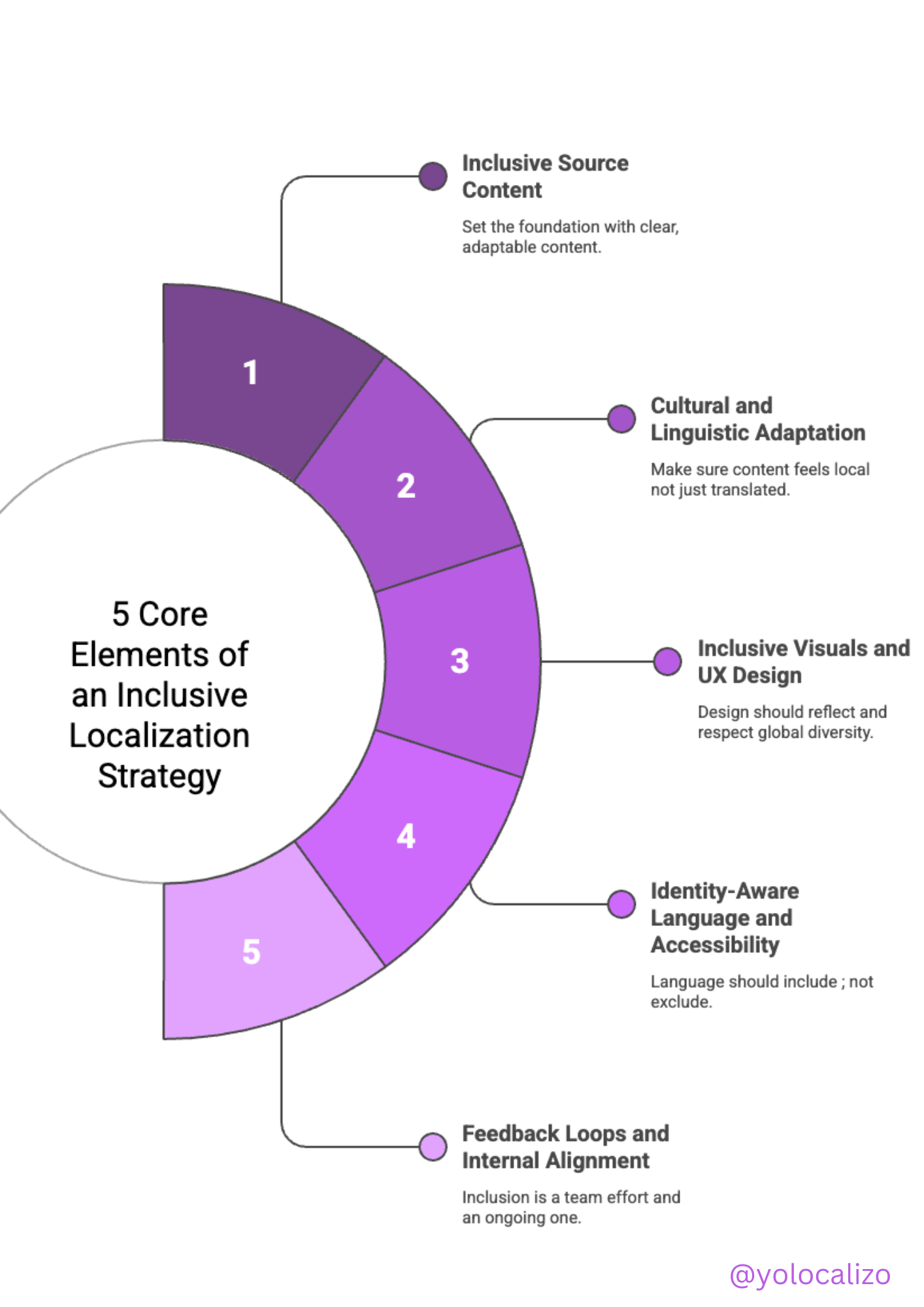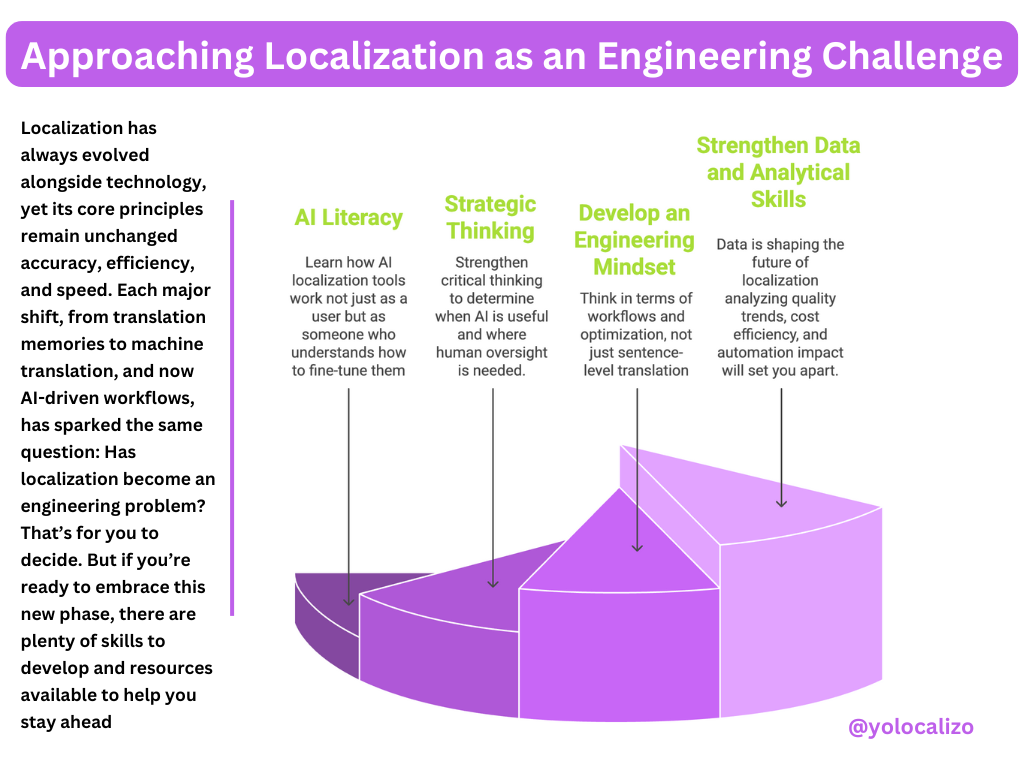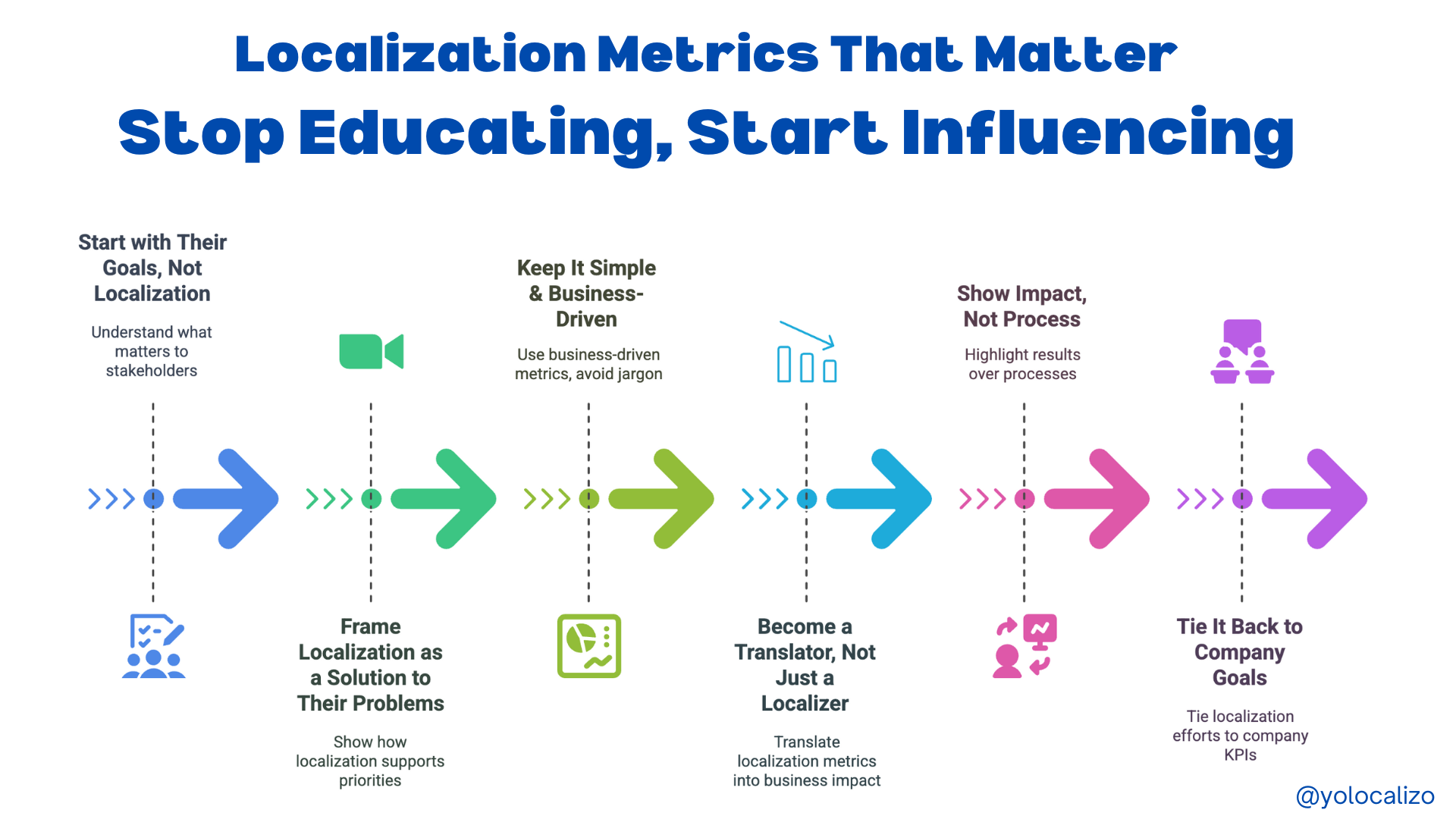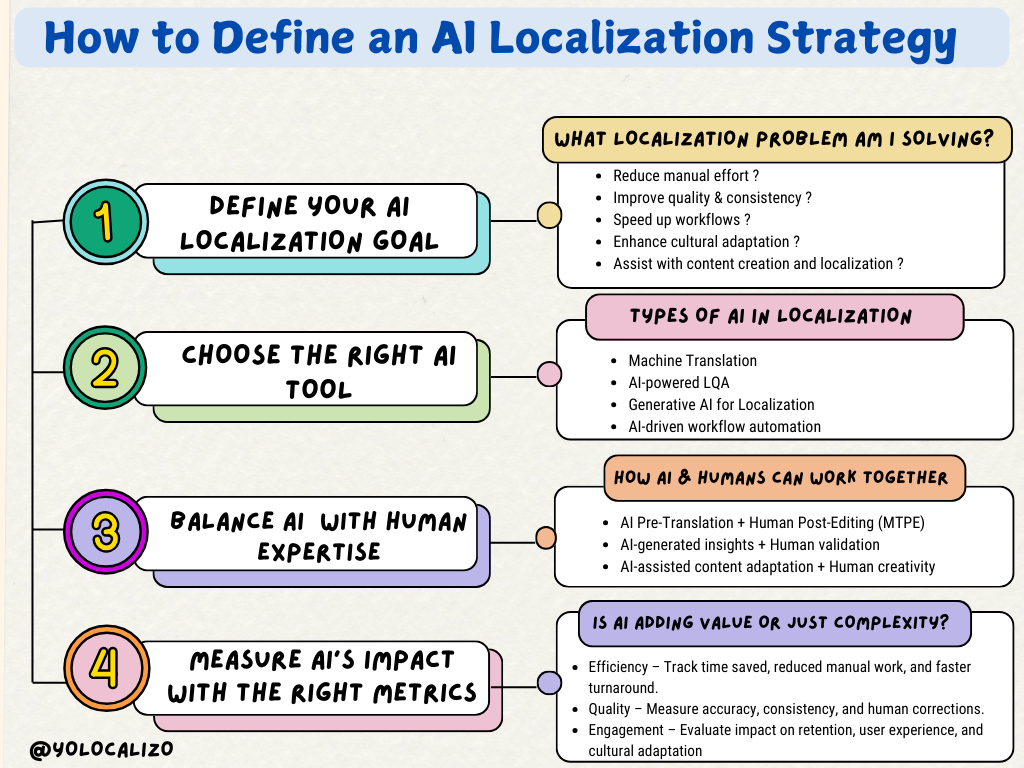9 areas in which a Vendor can help a Language Buyer in its Localization strategy
"Estan los pajaros que se tiran a la escopeta" .... That is an expression my father sometimes uses to describe an absurd situation where the roles are reversed. For example, someone violent complaining about violence and accusing others of being violent. I don't know how to say that saying in English; maybe the tables are turned or something similar. Anyways, I hope you understand the expression. It means that the world is upside down.
This happened to me on a specific occasion when, as Language Service Buyers (LSB), I was talking to a Language Service Provider (LSP) who was offering me his Localization services. There were several people from the LSP in that meeting. The Production Manager, the Sales Manager, and the Country Manager. Towards the middle of the meeting, after covering the typical points of a meeting of this style where collaboration opportunities are explored, the sales manager asked me a question that surprised me a lot; a question that in all the years I have been in the industry I had never been asked in such a direct way.
Sales representative "Miguel, one thing I want to ask you, why do you want to use an LSP to cover your Localization needs?
Why, with the budget you have, don't you go directly to the freelancers and control the whole production chain that affects your localized product?
The first thing I thought was, "this guy is going to get a slap from the country manager as soon as we finish the meeting," 😝 but, besides the fact that it is not a usual question to receive when an LSP comes to offer his services, the truth is that it is a good question.
After getting over the surprise of the question, I explained to him why I like to work with LSPs instead of freelancers directly (from my point of view).
The main reason is related to bureaucracy and associated tasks.
But on this Sunday morning, in the peace and quiet of my living room, with my children still sleeping yay!, I thought it would be a good idea to reflect more deeply on why I like to work with LSPs as a buyer of language services.
1) Finding a good freelancer is hard
The process of finding good freelance localizers is a lot like the process of hiring employees in general. And if you have been involved in the past in recruitment processes, either supporting the HR team or hiring directly for your team, you have surely realized how complex it is to find someone you consider a good fit. Finding good employees takes time, finding good new freelancers takes time, and LSBs often have little time to execute recruiting tasks in addition to the typical Localization management tasks of their project. I like the expression "we can do anything, but we cannot do everything." Is it applicable in this environment as well? Sure! An LSB could start looking for freelancers, but then, who is in charge of defining and executing the internal Localization strategy of the product?
And if that's not enough, you also have to find freelancers who are well versed in the niche your product is in. Localizing an eLearning course is very different from translating Life Sciences material or a video game.
And this is where things can get really tricky. Finding a specialist will take longer, and it is not uncommon that the specialist you want is busy with other clients and you have to wait in line for your turn.
2) Language coverage
Finding a freelancer who can help you localize content in a language not so widely spoken is also a source of potential delays.
For obvious reasons, for example, there are fewer freelance translators for Norwegian than for Spanish. I remember a particular project I did a few years ago where I needed to find at least one language resource for different European languages. And I remember like it was yesterday how difficult it was to find Norwegian candidates to interview and hire. And even when offering a competitive salary and immediate onboarding with certain benefits such as private health insurance, restaurant tickets, or flexible hours it wasn't easy to find Norwegian employees. In freelancing, it is even more difficult, especially if we cannot guarantee a specific volume of work that allows the freelancer to evaluate whether what we offer is worthwhile or not.
Finding a freelancer that can translate content into a lesser spoken language will take up time and resources.
3- Establishing trust with the translator
I think the area that I value the most when working with a vendor is establishing trust.
Building a relationship takes time. And building a relationship with a freelance translator takes even more time. As they say, trust takes a long time to establish and very little time to lose. Trust is based on transparency, performance, and seeing that my supplier can meet my demands over time. When unforeseen events arise, we talk about it, openly, without hiding information. There have been onboarding sessions where I have invited the PM and Translators Lead of the LSP to come to our offices for familiarization sessions. Working directly with freelancers, I would love to do that, but it is not easy due to logistics, security, and administrative issues.
4) Localization tools used daily
Clients have very specific tools; even with Localization tools, I can have the xx TMS and the freelancer has a different one.
At that stage, the tug-of-war starts about how to import files and how to process the job. Throughout my career, I have found on very few occasions that the LSP does not have the tools to work that I need. After all, an LSP offers his services to multiple clients, which makes the number of tools they have quite comprehensive
5) Offer workflow improvements
An LSP PM is in a unique position to offer improvements/suggestions to the processes and way of working. A PM at an LSP is likely to have translation experience; many Localization Project Managers have started their career adventure in the localization industry working as freelancers or in-house translators and have progressed to project management roles. That's why a vendor-side LPM works on multiple accounts. I, as an LSP, love to know how I can improve my processes, what tools other buyers are using that I might want to evaluate. In the end, a challenge I am facing may likely have already been solved by the LPM I am talking to. For this reason, the capacity for innovation and suggestions offered by an LSP will usually be superior to that of a freelancer.
6) Syncing with different time zones
What about the challenges of working with freelancers to cover 24 languages! The logistics of managing that communication are very high, especially in a continuous localization model where sprint orders with tight deadlines are common. For me, talking to an LPM in the European zone and another LPM, not in the European zone is an efficient model as they will manage the whole communication structure with their translators afterward. Setting up a one-to-one (or one-to-two) peer-to-peer communication is very valuable and saves me a lot of management time.
7) The possibility of buying several services
Let's take the example of Localizing a video game; I may be interested in a commercial relationship with a partner offering Localization, Localization QA, and functional QA services. I may want legal advice on how to deal with loot boxes in countries with restrictive policies against them. Definitely, as with other digital products, a video game has multiple layers related to language and culture, and covering such complexity via freelancers can be a big challenge for an LSB.
8) Access to MT technology
And what to say about Machine translation! With localization managers trying to speed up their software translation process, getting access to MT technology LSPs can offer directly to clients is extremely useful. The LSP can offer the LSB proprietary solutions to train their MT engine (if they have one) or offer consulting and expertise in choosing an MT engine or evaluating the quality delivered by the engine.
9) A sudden increase in the workload
All of us who are used to manage projects have faced at some time or another a change in the project schedule we are working on. These moments produce a lot of stress in the Localization team because it puts them in the situation of having to meet deadlines but without reducing quality. If, in addition to the stress of managing the project, the LSB has to look for freelancers and explain the project to them to feel familiar with the content to be localized, the panic attack approaches. For pure scalability factors, a Multilingual Vendor (MLV) will give a faster response to a sudden increase in the workload than in a model in which the LSB looks for the translators.
In summary …
Working directly with freelancers is an excellent approach if you have a relatively constant workload and work on localizing products that don't have abrupt changes in scope or schedule. Working directly with freelancers, you can get excellent quality, but you have to have the time to search for freelancers, evaluate their quality, handle multiple communication threads, and manage their payments. And all of that, for an LSB will eat up a lot of your time.
If you have time to manage freelance, I suggest that you do it, but if that is not your case, you may suffer a lot in the search phase, and you might be more interested in outsourcing the search phase to an LSP. Giving internal visibility of the work of a Localization team to your internal stakeholders is practically a full-time job; that's why outsourcing the "recruitment" to an LSP seems to be an interesting idea as a Localization strategy. After all, an LSP has the figure of the Vendor Manager, and this role is essential to identify the right resources for your project. By relying on LSP to find hour resources you will have the focus to reflect on time-consuming areas such as ... how do you measure the value that Localization brings to your organization?
Have a great week!
@yolocalizo














Localizability has always been a challenge small issues in source content often lead to big problems later in translation. In this post, I explore how AI is giving localization teams a powerful new way to improve source quality, reduce friction, and create better content for every market right from the start.